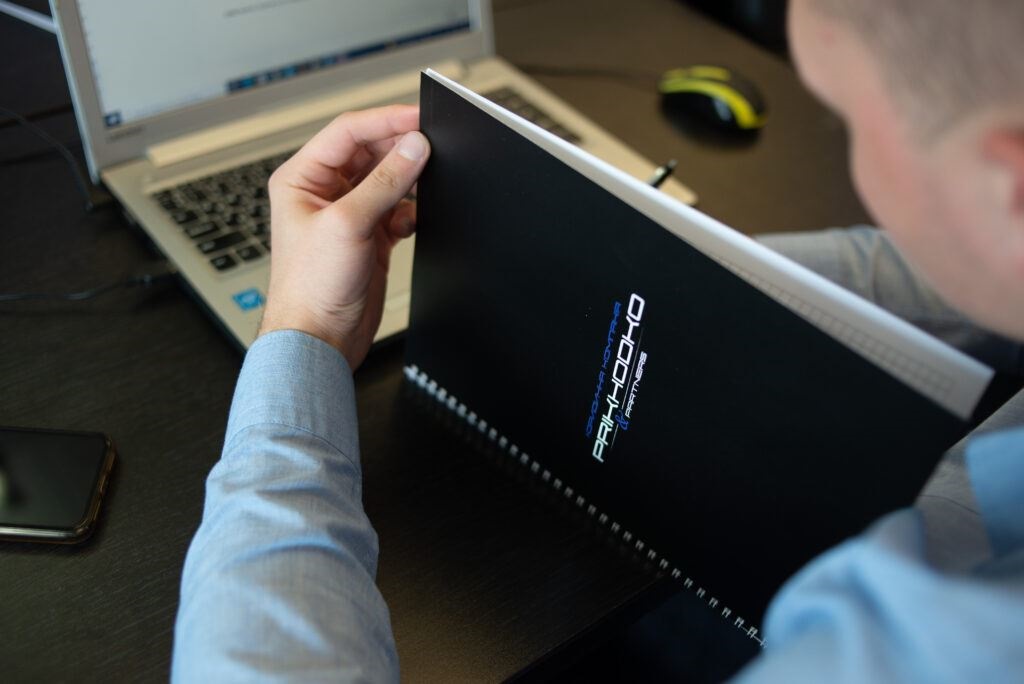
"We value our customers and realize that time is the most valuable resource that we help them save."
Head of International Corporate Law and Fintech Practice
A specialist in the practice of migration and corporate law, he also specializes in legal support for business in EU countries.
License for brokerage activity in Ukraine
A license for brokerage activity in Ukraine is a key factor in the regulation and control of financial markets. It gives brokers the right to perform financial services and serve clients.
A brokerage license is important to investors because it demonstrates that the broker is qualified and compliant with regulations. Investors can be confident that their interests will be protected by working with licensed brokers.

The process of obtaining a license for brokerage activity in Ukraine
The process for obtaining a brokerage license may vary depending on the country and regulatory body, as well as the type of brokerage you are applying for.
However, the overall process can be divided into several key stages:
- Preparatory stage.
Before applying for a license, you need to thoroughly familiarize yourself with the regulatory requirements and legislation that apply to brokerage activities. During this period, you can also determine what type of brokerage you are interested in and what market you want to serve.
- Collection of documents.
Next, you need to collect all the necessary documents for submitting an application.
This usually includes the following documents:
- A business plan. A description of your business, including strategy, financial plans, and other details.
- Financial Statements. Indicators of your company’s financial condition that prove your financial stability.
- Documents on the qualifications of employees. Certificates and licenses for employees who will engage in brokerage activities.
- Anti-Money Laundering (AML) Action Plan. A description of how your company will detect and prevent money laundering and terrorist financing.
- Internal control and risk policy. A document defining risk control and management procedures in your company.
- Copies of passports and photographs of managers and shareholders. Documents that confirm the identification of persons who manage the company.
- Application submission.
After collecting all the necessary documents, you submit an application for a license to the regulatory body. Usually, the application should be submitted in writing and follow the established deadlines and procedures.
- Inspection and evaluation.
After receiving your application, the regulatory body will begin the process of checking and evaluating all submitted documents. They may contact you with additional requests for information or clarification.
- Waiting for a decision.
After the inspection, the regulatory body will issue a decision on granting or refusing licensing. Review times may vary from country to country.
- Obtaining a license.
If your application is approved, you will receive a brokerage license. Once licensed, you must meet all requirements and standards set by the regulatory body and undergo regular inspections and audits.
Types of brokerage licenses
Types of brokerage licenses vary depending on the type of financial instruments and services that the broker intends to provide.
Here are some of the most common types of brokerage licenses:
- License for securities (Stock Broker License). This license allows the broker to trade in the stock market and serve clients who wish to buy and sell stocks and other securities. This type of license allows the broker to conduct operations on the primary and secondary markets.
- Forex license (Forex Broker License). A forex license allows a broker to trade on the international currency market (Forex). It allows the broker to provide currency exchange services, trading in currency pairs and other financial instruments on the Forex market.
- License for goods and raw materials (Commodity Broker License). This license gives the broker the right to trade commodities and commodities such as oil, gold, silver, grain, and other commodities. Brokers who have this license can help clients execute transactions in the commodity market.
- License for futures and options (Futures and Options Broker License). This license allows brokers to provide futures and options trading services. They help clients trade futures on financial instruments, commodities, indices, and other assets.
- License for cryptocurrencies (Cryptocurrency Broker License). This license allows brokers to work with cryptocurrencies such as Bitcoin, Ethereum, and others. It regulates the trading and exchange of cryptocurrencies, which is becoming an increasingly important aspect of brokerage activity.
- License for precious metals (Precious Metals Broker License). This license allows brokers to deal with precious metals such as gold and silver. They can provide physical and electronic trading services for these metals.
- License for international investments (International Investment Broker License). This license allows brokers to offer international investment services to clients, including portfolio management, investing in foreign assets, and other investment services.

Conclusion
A license for brokerage activity is a necessary element for the functioning of financial markets and the protection of investors. It helps ensure compliance with regulatory standards and requirements and customer confidence.
Violation of licensing requirements can lead to sanctions and loss of credibility, so it is important to carefully study all aspects of licensing before entering the brokerage business.
For consultation or calculation of the price of obtaining a license for brokerage activity – fill out the form below.
Calculate the cost of services
1 question
Do you need advice on obtaining a license?
2 question
Do you need help in collecting and preparing documents for obtaining a license?
3 question
Are you ready to consider buying a business (company) with an already valid license?

A specialist in the practice of migration and corporate law, he also specializes in legal support for business in EU countries.
TOP lawyers dealing with such cases in Ukraine
How to order the service? How do we work?
Leave an application on the website in the selected service and our lawyers will call you to provide a detailed consultation and resolve your issue.
- Application
- Calling a lawyer
and defining tasks - Contract and payment
- Consultation,
case analysis, specialist work
What is the price for a lawyer's consultation and assistance?
Price for services in the "Corporate law" category:
| The name of the service | Price, UAH | Terms |
|---|---|---|
| Registration of ownership | from 8000 UAH | for 2 days |
| Liquidation of LLC | from 30000 UAH | for 3 days |
| Re-registration of a legal entity | from 5000 UAH | for 2 days |
| Help in opening a fop | from 5000 UAH | for 3 days |
| Development of the statute of the company (LLC) in Ukraine | from 10000 UAH | for 2 days |
| Change of the director of the joint-stock company | from 4000 UAH | for 2 days |
| CREATION OF INVESTMENT FUND AND MANAGEMENT OF ASSETS | from $5000 | since 6 months |
| OBTAINING A BANKING LICENSE IN UKRAINE | from $5000 | since 6 months |
| OBTAINING A LICENSE FOR A PAWN SHOP IN UKRAINE | from $5000 | since 3 months |
| Registration of a financial company | from $5000 | since 6 months |
You may also need:
Corporate law
License for gaming machine halls
Read moreCorporate law
License to import medicinal products in Ukraine
Read moreCorporate law
Buy a financial company in Ukraine
Read moreCorporate law
Hazardous waste license
Read moreCorporate law
License for organizing and conducting gambling activities in slot machine halls
Read moreCorporate law
Change of the director of the joint-stock company
Read moreCorporate law
Liquidation of a representative office of a foreign company in Ukraine
Read moreCorporate law
Mediation of corporate disputes
Read moreCorporate law
Obtaining a license for organizing and conducting gambling activities in casino gambling establishments
Read moreCorporate law
Internet casino license
Read moreCorporate law
Liquidation of LLC
Read moreCorporate law
Closing and Terminating an LLC in Europe
Read moreArticles on the topic:
call back
during the day











